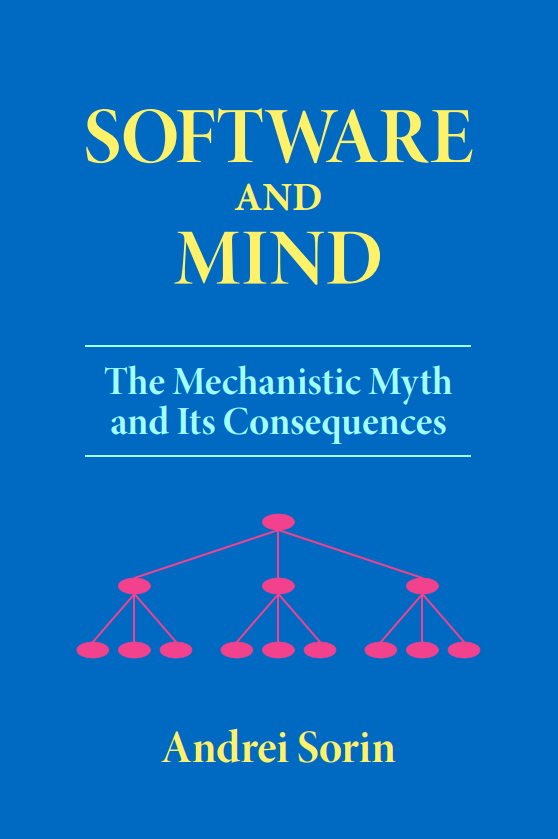Software and Mind
Editorial: Andsor Books
Licencia: Creative Commons (by-nc-nd)
Autor(es): Andrei Sorin
The mechanistic myth is the belief that everything can be described as a neat hierarchical structure of things within things. And few of us realize that our entire culture is based on this fallacy. While the world consists of complex, interacting structures, we prefer to treat every phenomenon as a simple, isolated structure.
Through our software pursuits, the mechanistic myth has spread beyond its academic origins, and is now affecting every aspect of human existence. In just one generation, it has expanded from worthless theories of mind and society (behaviourism, structuralism, universal grammar, etc.) to worthless concepts in the field of programming (structured programming, object-oriented programming, the relational database model, etc.) to worthless software-related activities that we all have to perform.
What is worse, our mechanistic beliefs have permitted powerful software elites to arise. While appearing to help us enjoy the benefits of software, the elites are in fact preventing us from creating and using software effectively. By invoking mechanistic software principles, they are fostering ignorance in software-related matters and inducing dependence on their systems. Increasingly, in one occupation after another,
all we need to know is how to operate some software systems that are based on mechanistic principles. But our minds are capable of nonmechanistic knowledge. So, when the elites force us to depend on their software, they exploit us in two ways: by preventing us from creating better, non-mechanistic software; and by preventing us from using the superior, non-mechanistic capabilities of our minds.
The ultimate consequence of our mechanistic culture, then, is the degradation of minds. If we restrict ourselves to mechanistic performance, our non-mechanistic capabilities remain undeveloped. The world is becoming more and more complex, yet we see only its simple, mechanistic aspects. So we cope perhaps with the mechanistic problems, but the complex, non-mechanistic ones remain unsolved, and may eventually destroy us.
[2013]
Compartir:
Una vez que el usuario haya visto al menos un documento, este fragmento será visible.


